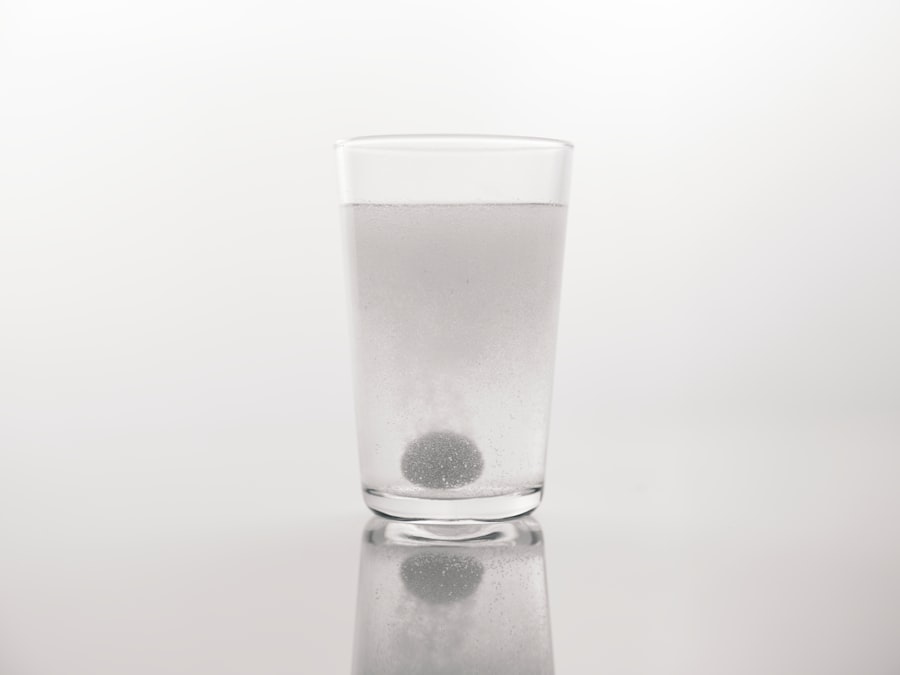Alkaline water has a history that stretches back centuries, with its roots deeply embedded in various cultures that recognized the potential health benefits of water with a higher pH level. The concept of alkaline water can be traced to ancient civilizations, where natural springs and mineral-rich waters were revered for their purported healing properties. In places like Japan, the practice of drinking alkaline water gained popularity in the 20th century, particularly after the introduction of ionization technology.
This technology allowed for the creation of alkaline water at home, making it accessible to a broader audience. The modern fascination with alkaline water surged in the late 20th and early 21st centuries, fueled by a growing interest in health and wellness. As people became more aware of the potential impact of diet and lifestyle on overall health, alkaline water emerged as a trendy alternative to regular tap or bottled water.
Proponents claimed that it could neutralize acidity in the body, improve hydration, and even prevent chronic diseases. This surge in popularity led to a proliferation of products marketed as alkaline water, ranging from bottled varieties to home filtration systems designed to increase the pH of drinking water.
Key Takeaways
- Alkaline water is believed to have originated from natural springs with higher pH levels.
- The health benefits of alkaline water are often overstated and not fully supported by scientific evidence.
- Alkaline water may aid hydration but does not significantly impact digestion or bone health.
- Potential risks include altering stomach acidity and interfering with natural body processes.
- Overall, drinking alkaline water is not essential and should be approached with caution.
The pH Myth: Understanding Alkaline Water
At the heart of the discussion surrounding alkaline water lies the concept of pH, a scale that measures how acidic or basic a substance is. Pure water has a neutral pH of 7, while alkaline water typically has a pH level above 7, often ranging from 8 to 9.
However, the notion that consuming alkaline water can significantly alter the body’s overall pH balance is a common misconception.
The human body is remarkably adept at maintaining its internal pH levels, primarily through the buffering action of blood and other bodily fluids. Many advocates of alkaline water argue that modern diets, rich in processed foods and sugars, lead to an overly acidic environment in the body. They suggest that drinking alkaline water can help restore balance and promote better health.
However, scientific evidence supporting these claims remains limited. The body’s natural regulatory mechanisms are designed to keep blood pH within a narrow range, and while diet can influence urine pH, it does not have the same effect on blood pH. Thus, while alkaline water may provide some benefits, it is essential to approach its purported effects with a critical mindset.
Alkaline Water and Hydration

Hydration is a fundamental aspect of maintaining good health, and many people are constantly seeking ways to improve their fluid intake. Alkaline water is often marketed as a superior option for hydration due to its higher pH level and smaller molecular structure, which some claim allows for better absorption by cells. Proponents argue that this enhanced hydration can lead to improved energy levels, better skin health, and overall well-being.
However, scientific studies on the hydration benefits of alkaline water are still limited. While some research suggests that alkaline water may help with hydration during exercise by reducing blood viscosity, more comprehensive studies are needed to draw definitive conclusions. It is crucial to remember that regular water—whether tap or bottled—remains an effective means of hydration for most individuals.
Ultimately, the best approach to hydration is to consume an adequate amount of fluids throughout the day, regardless of whether they are alkaline or not.
Alkaline Water and Digestion
| Metric | Alkaline Water | Regular Water | Notes |
|---|---|---|---|
| pH Level | 8.0 – 9.5 | 6.5 – 7.5 | Alkaline water has a higher pH, which may neutralize stomach acid |
| Effect on Stomach Acidity | May reduce acidity temporarily | Neutral effect | Potential to ease acid reflux symptoms |
| Impact on Digestion | Reported to improve digestion in some studies | Standard digestion support | More research needed for conclusive evidence |
| Hydration Efficiency | Similar to regular water | Standard hydration | Both hydrate effectively |
| Electrolyte Content | Contains minerals like calcium, magnesium | Varies, usually lower mineral content | Minerals may aid digestion and hydration |
| Potential Side Effects | May cause alkalosis if consumed excessively | Generally safe | Moderation is key |
The relationship between alkaline water and digestion is another area of interest for many health enthusiasts. Some proponents claim that drinking alkaline water can help neutralize stomach acid and improve digestive health. They argue that this can alleviate symptoms such as acid reflux or indigestion by creating a less acidic environment in the stomach.
However, the human digestive system is designed to function optimally in an acidic environment. The stomach produces hydrochloric acid to break down food and kill harmful bacteria. While drinking alkaline water may temporarily raise the pH level in the stomach, it is unlikely to have a lasting impact on overall digestive health.
In fact, some studies suggest that excessive consumption of alkaline substances could potentially disrupt normal digestive processes. Therefore, individuals experiencing digestive issues should consult healthcare professionals rather than relying solely on alkaline water as a remedy.
Alkaline Water and Bone Health
Bone health is a critical aspect of overall well-being, particularly as individuals age. Some advocates of alkaline water suggest that it may play a role in maintaining bone density and preventing osteoporosis. They argue that an acidic diet can lead to calcium leaching from bones as the body attempts to neutralize acidity levels.
While there is some evidence indicating that diet can influence bone health, the relationship between alkaline water and bone density remains complex and not fully understood. Some studies have shown that diets rich in fruits and vegetables—often associated with higher alkalinity—can positively impact bone health. However, these benefits are likely due to the overall nutritional profile rather than the specific effects of alkaline water itself.
Therefore, individuals concerned about bone health should focus on a balanced diet rich in calcium and vitamin D rather than relying solely on alkaline water.
Alkaline Water and Detoxification

The concept of detoxification has gained significant traction in recent years, with many individuals seeking ways to cleanse their bodies from toxins and impurities. Alkaline water is often touted as a detoxifying agent that can help flush out harmful substances from the body. Proponents argue that its higher pH level aids in neutralizing acids and promoting better kidney function.
While staying hydrated is essential for supporting the body’s natural detoxification processes, there is limited scientific evidence to support the idea that alkaline water offers any unique detoxifying benefits. The kidneys and liver are highly efficient organs responsible for filtering out toxins from the bloodstream, and they do not require alkaline water to function effectively. Instead of focusing solely on alkaline water for detoxification, individuals should prioritize a balanced diet rich in antioxidants, fiber, and hydration to support their body’s natural cleansing mechanisms.
Alkaline Water and Cancer Prevention
The relationship between diet and cancer prevention has been a topic of extensive research, leading some individuals to explore the potential role of alkaline water in reducing cancer risk. Advocates claim that an alkaline environment may inhibit cancer cell growth since cancer cells thrive in acidic conditions. This theory has led many to believe that drinking alkaline water could be a proactive measure against cancer.
However, scientific evidence supporting this claim remains inconclusive. While maintaining a healthy diet rich in fruits and vegetables can contribute to overall well-being and potentially lower cancer risk, there is no definitive proof that alkaline water alone can prevent cancer. The complexity of cancer development involves numerous factors, including genetics, lifestyle choices, and environmental influences.
Therefore, individuals should focus on comprehensive lifestyle changes—such as regular exercise, balanced nutrition, and avoiding harmful substances—rather than relying solely on alkaline water for cancer prevention.
Alkaline Water and Athletic Performance
Athletes often seek ways to enhance their performance and recovery times, leading some to explore the potential benefits of alkaline water. Proponents argue that drinking alkaline water can help reduce lactic acid buildup during exercise, leading to improved endurance and faster recovery times. Additionally, they suggest that its hydrating properties may provide athletes with an edge during training sessions.
While some studies have indicated that alkaline water may help reduce blood viscosity during intense exercise—potentially improving hydration—more research is needed to establish its effectiveness conclusively. Many athletes find success with traditional hydration methods using regular water or electrolyte-rich beverages. Ultimately, individual preferences and responses vary; thus, athletes should experiment with different hydration strategies to determine what works best for them.
Alkaline Water and Skin Health
The quest for healthy skin often leads individuals to explore various products and remedies, including dietary changes like incorporating alkaline water into their routines. Advocates claim that drinking alkaline water can improve skin hydration and elasticity while reducing signs of aging due to its purported detoxifying properties. While staying hydrated is undoubtedly beneficial for skin health, there is limited scientific evidence directly linking alkaline water consumption with improved skin conditions.
Factors such as genetics, environmental exposure, and overall diet play significant roles in skin health. Individuals seeking healthier skin should focus on maintaining proper hydration levels through adequate fluid intake while also considering other aspects such as skincare routines and sun protection.
The Dangers of Alkaline Water
Despite its popularity, there are potential dangers associated with excessive consumption of alkaline water. One concern is that overly high pH levels can disrupt the body’s natural balance, leading to metabolic alkalosis—a condition characterized by an imbalance in electrolytes and bodily functions. Symptoms may include muscle twitching, hand tremors, nausea, and confusion.
Additionally, individuals with certain medical conditions or those taking specific medications should exercise caution when consuming alkaline water.
It is essential for individuals to consult healthcare professionals before making significant changes to their hydration habits or incorporating new products into their diets.
The Bottom Line: Should You Drink Alkaline Water?
In conclusion, while alkaline water has garnered significant attention for its potential health benefits, it is essential for individuals to approach it with a balanced perspective. The origins of this trend are rooted in historical practices that recognized the value of mineral-rich waters; however, modern science has yet to provide conclusive evidence supporting many claims associated with alkaline water. For most people, regular hydration through traditional sources remains effective for maintaining overall health.
While there may be some benefits associated with drinking alkaline water—such as improved hydration during exercise—individuals should prioritize a well-rounded diet rich in nutrients over relying solely on any single product for health improvements. Ultimately, consulting healthcare professionals before making significant dietary changes is advisable for anyone considering incorporating alkaline water into their routine.
Recent discussions around the health benefits of alkaline water have sparked considerable debate, with many claims being scrutinized for their validity. An insightful article that delves into the myths surrounding alkaline water and its purported health benefits can be found [here](https://www.heydidyouknowthis.com/sample-page/). This resource provides a comprehensive analysis, debunking common misconceptions and offering a clearer understanding of the topic.
WATCH THIS! The $400 Billion Water Lie: Why Bottled Water Is a Scam
FAQs
What is alkaline water?
Alkaline water is water that has a higher pH level than regular drinking water, typically above 7. It often contains minerals like calcium, magnesium, and bicarbonate, which contribute to its alkalinity.
Are there proven health benefits of drinking alkaline water?
Scientific evidence supporting significant health benefits of alkaline water is limited. While some claims suggest it can neutralize acid in the body or improve hydration, these benefits have not been conclusively proven in rigorous clinical studies.
Can alkaline water help with acid reflux?
Some small studies indicate that alkaline water with a pH of 8.8 may help neutralize stomach acid and reduce symptoms of acid reflux. However, more extensive research is needed to confirm these effects.
Is alkaline water better for hydration than regular water?
There is no strong scientific evidence that alkaline water hydrates the body better than regular water. Both types of water effectively maintain hydration.
Are there any risks associated with drinking alkaline water?
Drinking alkaline water in moderate amounts is generally considered safe for most people. However, excessive consumption may disrupt the body’s natural pH balance and could lead to side effects such as digestive issues.
Does alkaline water affect the body’s overall pH balance?
The body tightly regulates its pH balance, especially in the blood, and drinking alkaline water is unlikely to significantly alter this balance.
Should people with kidney problems avoid alkaline water?
Individuals with kidney disease or other health conditions should consult a healthcare professional before consuming alkaline water regularly, as altered mineral content may affect their condition.
Is alkaline water the same as ionized water?
Alkaline water and ionized water are related but not identical. Ionized water is produced through electrolysis, which separates water into alkaline and acidic components. Alkaline water refers specifically to water with a higher pH, regardless of how it is produced.
Can alkaline water replace medical treatments?
No, alkaline water should not be used as a substitute for medical treatments or professional healthcare advice. It is important to rely on evidence-based treatments for health conditions.
